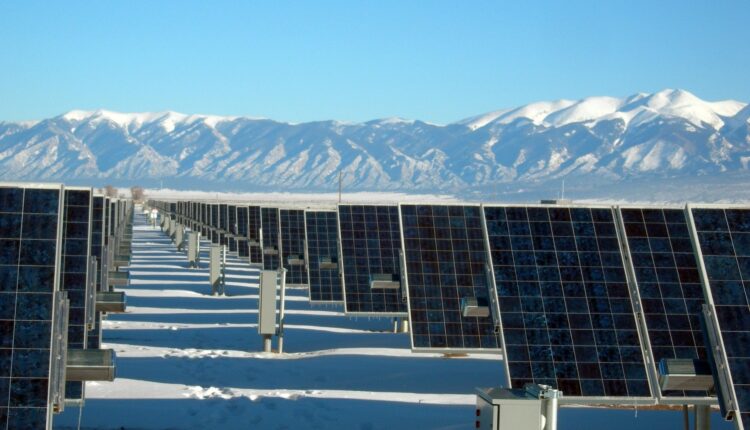Solar Energy Works
Solar energy is one of the most talked-about renewable energy sources today. And for good reason – it’s a clean, sustainable, and affordable way to generate electricity. But how does solar energy work, exactly? And what are the benefits of solar energy? In this blog post, we’ll answer those questions and more. We’ll also discuss the different types of solar energy and dispel some common solar energy myths. Finally, we’ll provide some tips on how to choose the right solar system for your home or business.
How Solar Energy Works
Solar energy is a renewable resource that can be used to generate electricity, heat water or air in homes and businesses, and power some transportation options. Solar power works by trapping sunlight in photovoltaic cells or solar thermal collectors. When sunlight is absorbed by these cells, it sets off a chemical reaction that produces direct current (DC) electricity. This DC electricity can then be used to turn on electronic devices or generators.
Most solar power systems use photovoltaic cells, which are made from a material that converts sunlight into electricity. When the sun shines on these cells, it causes electrons to jump out of the atom in the materials and move through an external circuit. This current can then be used to power devices or generators.
There are two main types of photovoltaic cells: thin film and bulk silicon. Thin film cells are usually more efficient than bulk silicon cells, but they require more space to install since they are smaller. Bulk silicon cells are not as efficient as thin film cells, but they are easier to install and maintain since they don’t need a protective coating like thin film cells do.
The Benefits Of Solar Energy
With the increasing cost of electricity, many people are looking for ways to reduce their costs. Solar energy is one option that can be very beneficial for your wallet and environment. Here are four reasons why solar power is a great choice:
1) Solar power is low maintenance. Unlike other types of energy sources, like coal or oil, solar panels do not require regular maintenance in order to keep them running smoothly. This means that you will save money on your electric bill in the long run because you won’t have to spend money on repairs or replacements.
2) Solar power is environmentally friendly. Energy from solar panels isn’t polluting the air like energy from fossil fuels can be. This means that you’re reducing your carbon footprint by using solar power instead of more harmful options like coal or oil.
3) Solar power is affordable. Even with today’s high prices for electricity, it’s still possible to afford solar panel installation if you’re prepared to invest some time and money upfront. And since solar technology continues to improve over time, the price of installs will continue falling over time as well!
4) Solar power benefits everyone in the community – even those who don’t use it yet! When you install a solar system, you’re creating jobs in the engineering and construction fields as well as providing clean renewable energy for your neighbors and community members who may not have access to other forms of energy yet.
The Different Types Of Solar Energy
When it comes to solar energy, there are a variety of different types that can be used. This article will discuss the different types of solar energy and their respective benefits. Additionally, this article will cover the cost of solar energy as well as how it works.
There are three main types of solar energy: thermal (heat), photovoltaic (light), and wind. Each type has its own unique benefits and drawbacks, so it’s important to choose the right one for your situation.
Thermal Solar Energy Thermal solar energy is the most common type of solar energy because it’s affordable and easy to install. It uses sunlight to heat up water or air, which then turns into steam and creates electricity. The main drawback is that it doesn’t work in cold weather conditions, so it’s not suitable for areas where there’s a lot of snowfall.
Photovoltaic Solar Energy PV panels convert light into electricity, just like traditional photocells do in digital cameras. However, unlike regular photocells, PV panels can collect sunlight throughout the day without having to be pointed at the sun directly. This makes them perfect for areas with lots of cloud coverage or darkness at night time. The main downside is that they require direct sunlight to work properly – if you have a roof that blocks too much sunlight from hitting the panels, you’ll need to invest in an offset system or shade cloths to make up for it.
Wind Solar Energy Wind turbines use wind power to turn mechanical gears which produce electricity- just like generators do in homes and businesses today! The major difference between wind turbines and generators is that generators require fuel – typically coal or gas – while wind turbines don’t need any extra input besides air flowing through them freely (and sometimes a bit of oil). Because wind turbines are more efficient than generators when converting mechanical motion into electrical output (80% vs 40%), they’re becoming more popular each year as renewable sources of power become more widespread.
Solar Energy FAQs
What are the benefits of solar energy?
Solar energy is beneficial for a variety of reasons. For example, it is renewable and doesn’t produce any pollution. Additionally, solar energy is cost-effective and has low maintenance costs.
How does solar energy work?
Solar energy works by converting sunlight into electricity. This can be done in several ways, including using photovoltaic cells or concentrated solar power (CSP). Each type of solar panel has its own advantages and disadvantages, so it’s important to choose the right one for your project.
Is solar energy renewable?
Yes, solar energy is renewable because it can be restored multiple times. For example, when PV panels are installed, they generate electricity for a fixed period of time – typically 25 years or more. After that point, the panels will start to decline in performance due to wear and tear. However, by restoring these panels with new technology (such as CSP), they can continue generating electricity indefinitely!
When you choose solar energy, it’s important to remember that there are a variety of different types of panels and technologies available. Make sure you select the right one for your project and budget. There are also a number of other factors to consider, such as lighting and heating needs.
Solar energy is an excellent choice for many projects – whether you’re looking to save money on your electricity bill or reduce your carbon footprint. If you’re interested in learning more about solar energy, be sure to check out our FAQs page!
How To Choose The Right Solar System
When choosing a solar system, there are a variety of factors you need to consider. One of the most important is your energy needs. For example, if you have a large family or require a lot of electricity, you’ll need to opt for a larger solar system.
Another important factor to consider is your budget. You don’t want to overspend on your solar system, because this will only end up costing you in the long run. It’s also important to get quotes from multiple providers so you can compare costs and benefits. Finally, it’s helpful to read reviews and compare companies before making your decision. By doing all of these things, you’ll be able to find the best solar system for your needs!
Once you’ve chosen all of the important factors, it’s time to choose a solar system. One way to do this is to go online and visit different websites that offer solar quotes. You can also call various providers and ask for quotes. Another option is to go in person and look at different systems. This is especially helpful if you live in an area with a lot of competition. It’s also helpful to read reviews before making your decision so you can get an idea of which companies are reputable and which ones aren’t. After choosing a provider, it’s time to start planning your installation!
Solar Financing Options
If you’re considering solar power, you may be wondering what financing options are available to you. Here are six of the most popular solar financing options:
1. Tax Credit
2. Loan
3. Solar lease
4. Power purchase agreement (PPA)
5. Feed-in tariff (FIT)
6. Home equity loan
Tax Credit
If you’re eligible for a tax credit, you can take advantage of this option to finance your solar project. The government will give you a tax break in the form of a refundable credit. This means that even if you don’t pay taxes on your solar investment right away, the government will still give you back part of your money.
Loan
You may also be able to borrow money to fund your solar project. A loan can come from a bank or another financial institution, and it’ll generally have lower interest rates than some of the other financing options.
Solar lease
Another option is to lease your solar system from an installer instead of buying it outright. This type of agreement typically has shorter terms than purchasing and installing the system yourself, so it could be more cost-effective depending on your needs and budgeting constraints.
Power purchase agreement (PPA)
Another popular option is a power purchase agreement (PPA). With a PPA, you agree to buy electricity from an energy provider at a fixed price for an agreed period of time. This could be useful if you’re not sure when or whether you’ll need electric power, or if you want medication or heating turned off during specific hours so as not to affect your monthly bills too much.
Feed-in tariff (FIT)
The final two options are feed-in tariffs (FITs). With FITs, governments offer incentives – such as reduced utility rates – in order to encourage consumers and businesses to install renewable energy systems like solar panels. These programs tend to be more generous than tax credits or loans, so they may be worth considering if you think that renewable energy is right for your home or business situation.
The Future Of Solar Energy
The future of solar energy is looking bright! Solar panels are becoming more efficient, and new applications for solar energy are being developed all the time. In particular, solar energy is becoming more affordable as technology continues to develop. Additionally, the rise of solar energy usage among consumers indicates that there is strong potential for this renewable resource to grow even further.
Some solar companies are already generating more electricity from the sun than they need to meet their own needs. This indicates that solar energy has great potential to scale up and become even more affordable in the future. Other companies are working on new ways to use solar energy, such as using it to power homes, businesses, and even satellites. In short, there is no telling how far solar energy will go in the future!
Conclusion
Solar energy is a great renewable resource that comes with a lot of benefits. It’s important to do your research and find the right type of solar system for your needs. By doing this, you can save money and help the environment!


Comments are closed.